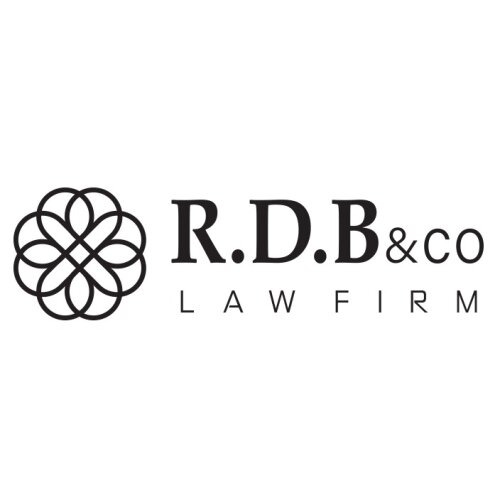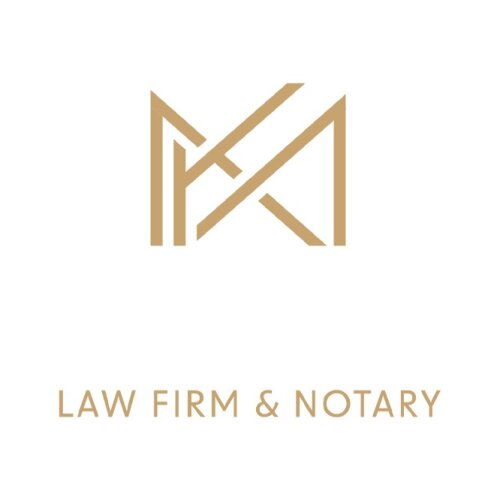Best Foreclosure Lawyers in Petaẖ Tiqwa
Share your needs with us, get contacted by law firms.
Free. Takes 2 min.
Free Guide to Hiring a Real Estate Lawyer
List of the best lawyers in Petaẖ Tiqwa, Israel
About Foreclosure Law in Petaẖ Tiqwa, Israel
Foreclosure in Petaẖ Tiqwa, Israel, involves the legal process where a lender attempts to recover the balance of a loan from a borrower who has stopped making payments. The process typically results in the sale of the property used as collateral for the loan. Given the complexity of the foreclosure process, it is subject to specific regulations and laws designed to protect both lenders and borrowers.
Why You May Need a Lawyer
Engaging a lawyer in foreclosure situations can be crucial for several reasons. You may need legal assistance if you are:
1. Facing foreclosure and need help understanding your rights and options.
2. Challenging a lender's claim or seeking to negotiate a loan modification.
3. Defending against a foreclosure lawsuit filed by a lender.
4. Involved in disputes over the valuation of the property or other specifics of the foreclosure process.
5. Trying to navigate the legal proceedings to potentially prevent the loss of your home.
Local Laws Overview
Foreclosure in Petaẖ Tiqwa is governed by both national and local laws. Key aspects include:
1. Strict Timelines: Borrowers are given specific timeframes within which to respond to foreclosure notices.
2. Judicial Process: Foreclosures are typically handled through the courts, where both parties can present their case.
3. Borrower Rights: Borrowers have rights to contest the foreclosure and offer defenses against the lender's claims.
4. Redemption Period: In some cases, borrowers may have a right to redeem their property by paying the outstanding debt even after the foreclosure sale.
5. Consumer Protections: Laws exist to prevent unfair lending practices and ensure that foreclosure processes are conducted fairly.
Frequently Asked Questions
1. What is foreclosure?
Foreclosure is the legal process that allows a lender to recover the amount owed on a defaulted loan by selling or taking ownership of the property used as collateral.
2. How long does the foreclosure process take in Petaẖ Tiqwa?
The duration can vary but typically takes several months to over a year, depending on whether the borrower contests the foreclosure and other circumstances.
3. Can I stop a foreclosure?
Yes, there are several ways to potentially stop a foreclosure, such as negotiating a repayment plan, seeking a loan modification, or filing for bankruptcy.
4. What happens to the proceeds from a foreclosure sale?
The proceeds are used to pay off the remaining mortgage debt, legal fees, and other related costs. Any surplus is typically returned to the borrower.
5. Do I have to move out immediately after foreclosure?
No, generally there is a period during which the borrower can stay in the home. The specific timeline can vary based on court orders and local laws.
6. Can I buy my house back after foreclosure?
In some cases, there is a redemption period allowing the borrower to repurchase the home by paying the full outstanding debt, though this option is limited and varies by case.
7. Will foreclosure affect my credit score?
Yes, a foreclosure can significantly impact your credit score and remain on your credit report for several years, affecting your ability to obtain new credit.
8. What should I do if I receive a foreclosure notice?
Seek legal advice immediately to understand your rights and potential defenses. Responding promptly is crucial to protect your interests.
9. Can a lender foreclose without going to court?
In Israel, most foreclosures are judicial, meaning they require court involvement. Non-judicial foreclosures are less common.
10. What are my rights as a tenant if the property I’m renting is foreclosed?
Tenant rights can vary, but generally, new ownership must honor existing lease agreements or provide adequate notice to tenants if they need to vacate.
Additional Resources
If you need more information on foreclosure, consider reaching out to:
1. Local legal aid organizations in Petaẖ Tiqwa.
2. The Israeli Bar Association for referrals to qualified foreclosure attorneys.
3. Governmental bodies such as the Ministry of Justice for official guidelines and protections.
4. Consumer protection agencies for advice and support.
Next Steps
If you require legal assistance with foreclosure in Petaẖ Tiqwa, here’s how to proceed:
1. **Consult a Lawyer:** Find a lawyer experienced in foreclosure law to discuss your case.
2. **Gather Documentation:** Prepare all relevant documents, including mortgage statements, foreclosure notices, and any correspondence with your lender.
3. **Act Promptly:** Respond to any legal notices and court summons promptly to ensure your rights are protected.
4. **Explore Options:** Discuss potential alternatives with your lawyer, such as loan modification, repayment plans, or bankruptcy.
5. **Stay Informed:** Keep abreast of local laws and any changes that might affect your situation.
Lawzana helps you find the best lawyers and law firms in Petaẖ Tiqwa through a curated and pre-screened list of qualified legal professionals. Our platform offers rankings and detailed profiles of attorneys and law firms, allowing you to compare based on practice areas, including Foreclosure, experience, and client feedback.
Each profile includes a description of the firm's areas of practice, client reviews, team members and partners, year of establishment, spoken languages, office locations, contact information, social media presence, and any published articles or resources. Most firms on our platform speak English and are experienced in both local and international legal matters.
Get a quote from top-rated law firms in Petaẖ Tiqwa, Israel — quickly, securely, and without unnecessary hassle.
Disclaimer:
The information provided on this page is for general informational purposes only and does not constitute legal advice. While we strive to ensure the accuracy and relevance of the content, legal information may change over time, and interpretations of the law can vary. You should always consult with a qualified legal professional for advice specific to your situation.
We disclaim all liability for actions taken or not taken based on the content of this page. If you believe any information is incorrect or outdated, please contact us, and we will review and update it where appropriate.












